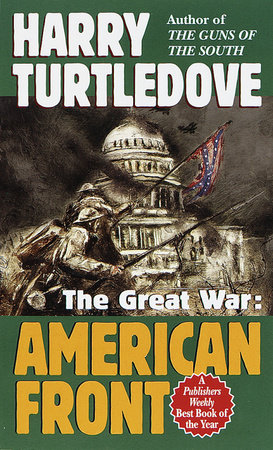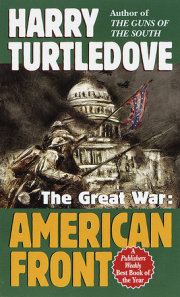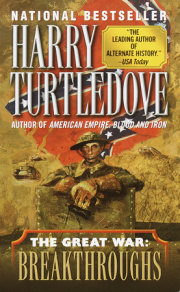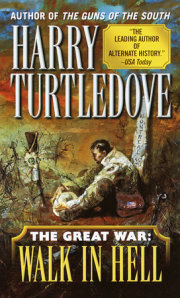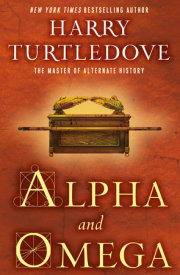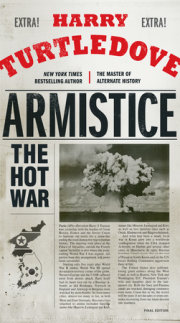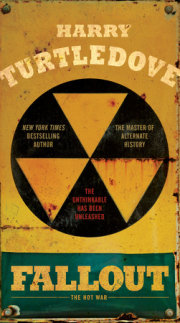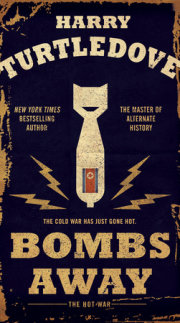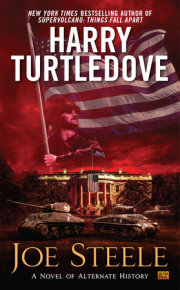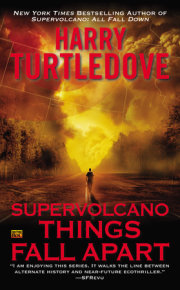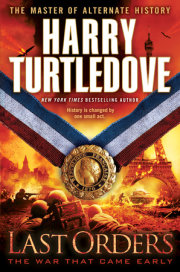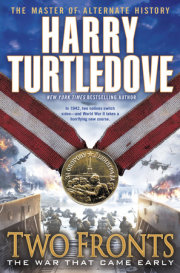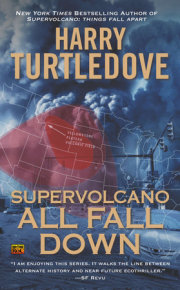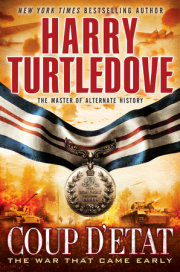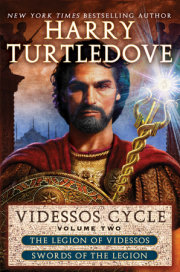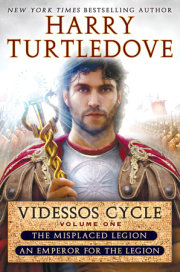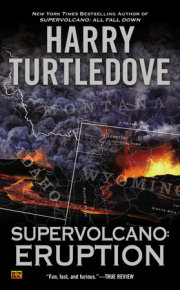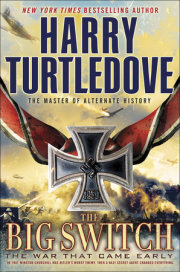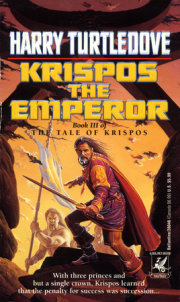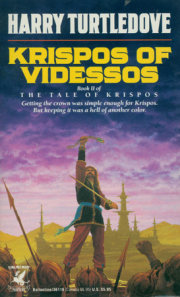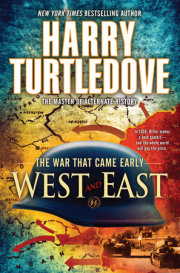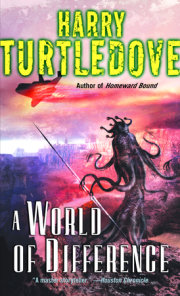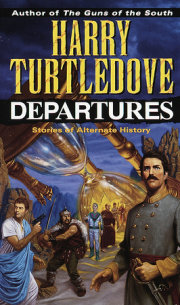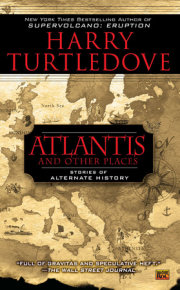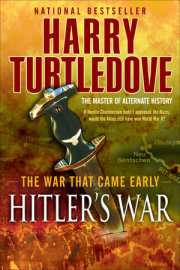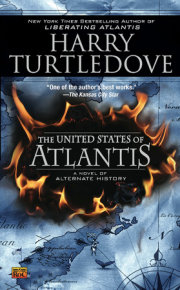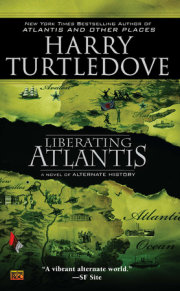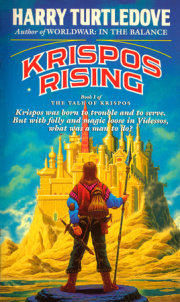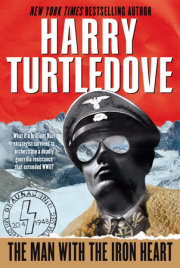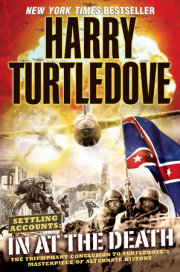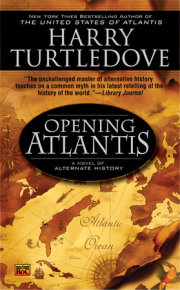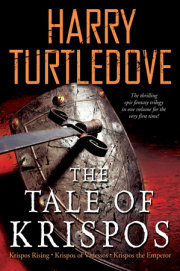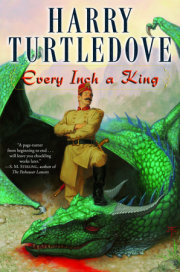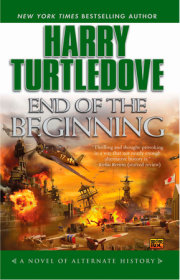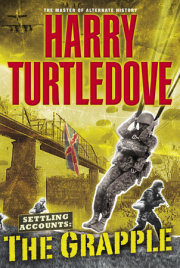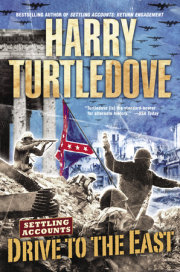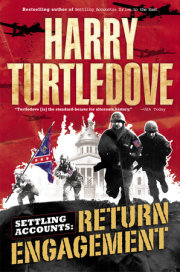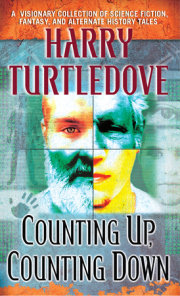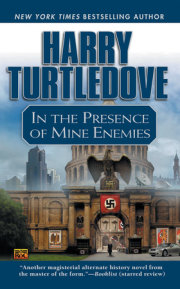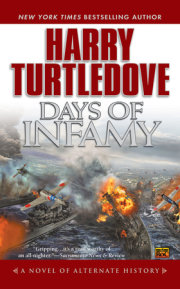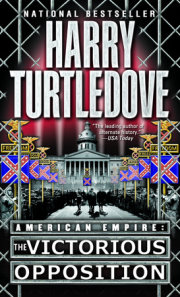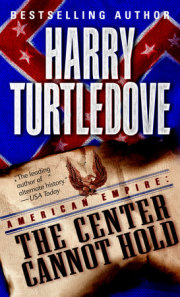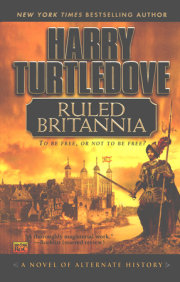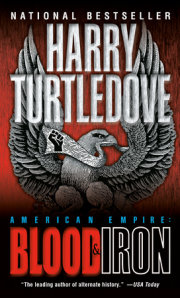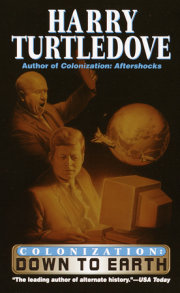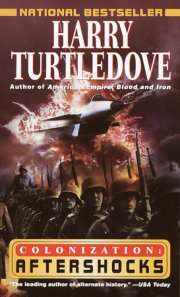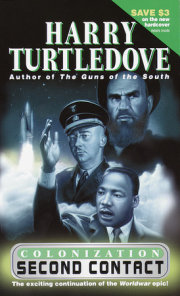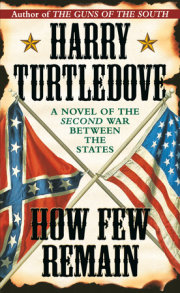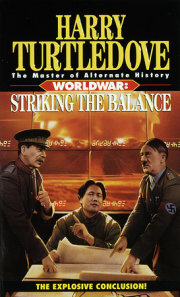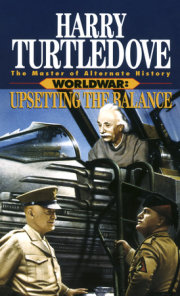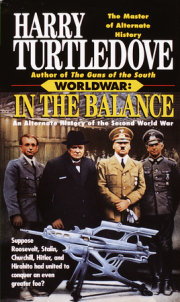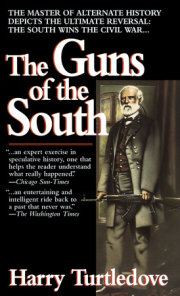George Enos was gutting haddock on the noisome deck of the steam trawler Ripple when Fred Butcher, the first mate, sang out, "Smoke off the starboard bow!" That gave George an excuse to pull the latest fish off the deck, gut it, toss it down into the icy, brine-smelling hold, and then straighten up and see what sort of ship was approaching.
His back made little popping noises as he came out of this stoop. I'm getting too old for this line of work, he thought, though he was only twenty-eight. He rubbed at his brown mustache with a leather-gloved hand. A fish scale scratched his cheek. The sweat running down his face in the late June heat made the little cut sting.
He followed Butcher's pointing finger with his eyes. "A lot of smoke," he said, whistling low. "That's not just another Georges Bank fishing boat, or a tramp freighter, either." His Boston accent swallowed the r's in the final syllables of the last two words. "Liner, I'd guess, or maybe a warship."
"I think you're right," Butcher said. He was little and skinny and quick and clever, his face seamed by wind and sun and spray till he looked to have ten more years than the forty-five or so he really carried. His mustache was salt and pepper, about evenly mixed. Like Enos, he grew it thick and waxed the ends so they pointed toward his eyes. Half the men in the United States who wore mustaches modeled them after the one gracing Kaiser Wilhelm's upper lip.
Captain Patrick O'Donnell came out of the cabin and pressed a spyglass to his right eye. "Warship, sure enough," he said, his Boston mixed with a trace of a brogue. "Four-stacker--German armored cruiser, unless I'm wrong."
"If you say it, Captain, we'll take it to the bank," Fred Butcher answered. That wasn't apple-polishing. O'Donnell had spent years in the U.S. Navy, rising to chief petty officer, before he retired and went into business for himself. He'd seen German warships at a lot closer than spyglass range; he'd exercised alongside them, out in the middle of the Atlantic, and maybe in the Pacific, too.
"She's going to pass close to us," Enos said. He could see the great gray hull of the ship now, almost bow-on to the Ripple. The plume of black coal smoke trailed away behind.
Captain O'Donnell still had the telescope aimed at the approaching ship. "Imperial German Navy, sure enough," he said. "I can make out the ensign. Now--is that the Roon or the Yorck?" He kept looking, and finally grunted in satisfaction. "The Yorck, and no mistaking her. See how her cranes are pierced? If she were the Roon, they'd be solid."
"If you say so, Captain. You're the one with the spyglass, after all." Enos' chuckle suited his wry sense of humor. He took another naked-eye look at the oncoming Yorck. The cruiser was nearly bow-on. When he spoke again, he sounded anxious: "We see her, Captain, but does she see us?"
The question was anything but idle. As the Yorck drew near, she seemed more and more like an armored cliff bearing down on the steam trawler. The Ripple was 114 feet long and displaced 244 gross tons. That made her one of the bigger fishing boats operating out of Boston harbor. All at once, though, Enos felt as if he were in a rowboat, and a pint-sized rowboat at that.
"How big is she, Captain?" Fred Butcher asked. The huge hull and great gun turrets gave him pause, too.
"At the waterline, 403 feet, 3 inches," O'Donnell answered with the automatic accuracy of the longtime Navy man he was. "She displaces 9,050 tons. Four 8.2-inch guns, ten 6-inchers, crew of 557. Four-inch armor amidships, two-inch belts at the ends. She'll make twenty-one knots in a sprint."
"If she runs us down, she won't even notice, in other words," Enos said.
"That's about right, George," O'Donnell answered easily. He took pride in the strength and speed of naval vessels, as if having served on them somehow magically gave him strength and speed as well. Even so, though, his glance flicked to the American flag rippling atop the foremast. The sight of the thirty-four-star banner rippling in the brisk breeze must have reassured him. "They'll see us just fine. Here, if you're still worried, I'll send up a flare, that I will." He dug a cigar out of his jacket pocket, scraped a match against the sole of his boot, and puffed out a cloud almost as malodorous as the coal smoke issuing from the Yorck's stacks.
As if his cigar had been a message to the German cruiser, signal flags sprouted from her yards. O'Donnell raised the telescope to his eye once more. The cigar in his mouth jerked sharply upward, a sure sign of good humor. "By Jesus, they want to know if we have fish to sell!" he burst out. He turned to Butcher. "Tell 'em yes, and don't waste a second doing it."
The affirmative pennant went up almost as quickly as the order had been given. The Yorck slowed in the water, drifting to a stop about a quarter-mile from the Ripple. Then everyone aboard the steam trawler whooped with delight as the German cruiser let down a boat. "Hot damn!" yelled Lucas Phelps, one of the men minding the trawl the Ripple had been dragging along the shallow bottom of Georges Bank. "The Germans, they'll pay us better'n the Bay State Fishing Company ever would."
"And it all goes into our pockets, too," Fred Butcher said gleefully. On fish that made it back to Boston, the crew and the company that owned the boat split the take down the middle. Butcher went on, "We're light five hundred, a thousand pounds of haddock, that's not ever gonna get noticed."
The happy silence of conspiracy settled over the Ripple.
Copyright © 1998 by Harry Turtledove. All rights reserved. No part of this excerpt may be reproduced or reprinted without permission in writing from the publisher.

